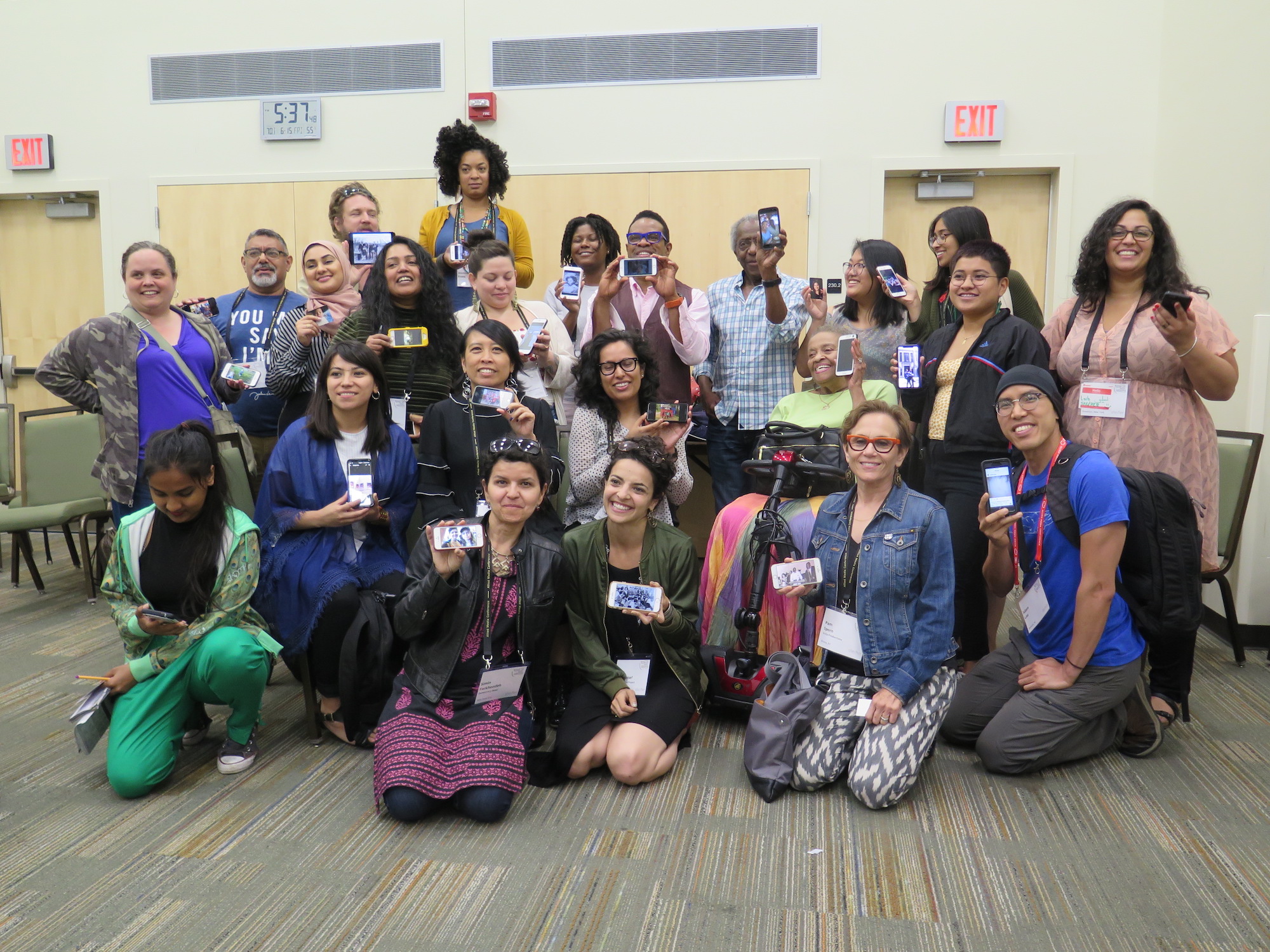
Every year, thousands of media-makers, organizers, and agents for social change converge in Detroit for the Allied Media Conference (AMC): a 4-day, volunteer-coordinated conference that hosts hundreds of sessions focused on using media to build a more equitable, sustainable, and collaborative world. These sessions are far-reaching and innovative in their interpretation of media, ranging from food justice labs to virtual reality workshops.
This year, Family Pictures USA returned to Detroit for our hands-on session, “Transforming the Family Album into a Tool for Social Change”. Read on for our 20th Annual Allied Media Conference highlights, including new insights from our second year at the conference:
A YEAR THROUGH MOVEMENTS
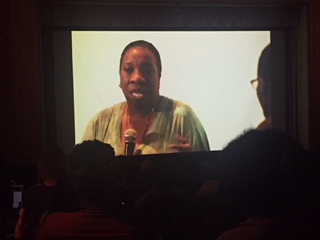
Projection of Tarana Burke speaking at AMC2018
A year has passed since our Family Pictures USA production in Detroit – several months where we teamed up with Detroit families, collectives, and organizations to assemble an archive of Detroit family photos and stories for a new public TV series. That summer we were invited to share our work at the AMC, an unforgettable experience that moved our team and AMC participants. After a year of developing the project, which has included workshops at Black Communities: A Conference for Collaboration and CAAMFest, it felt important to return to Detroit to share an update with the community and host another photo share!
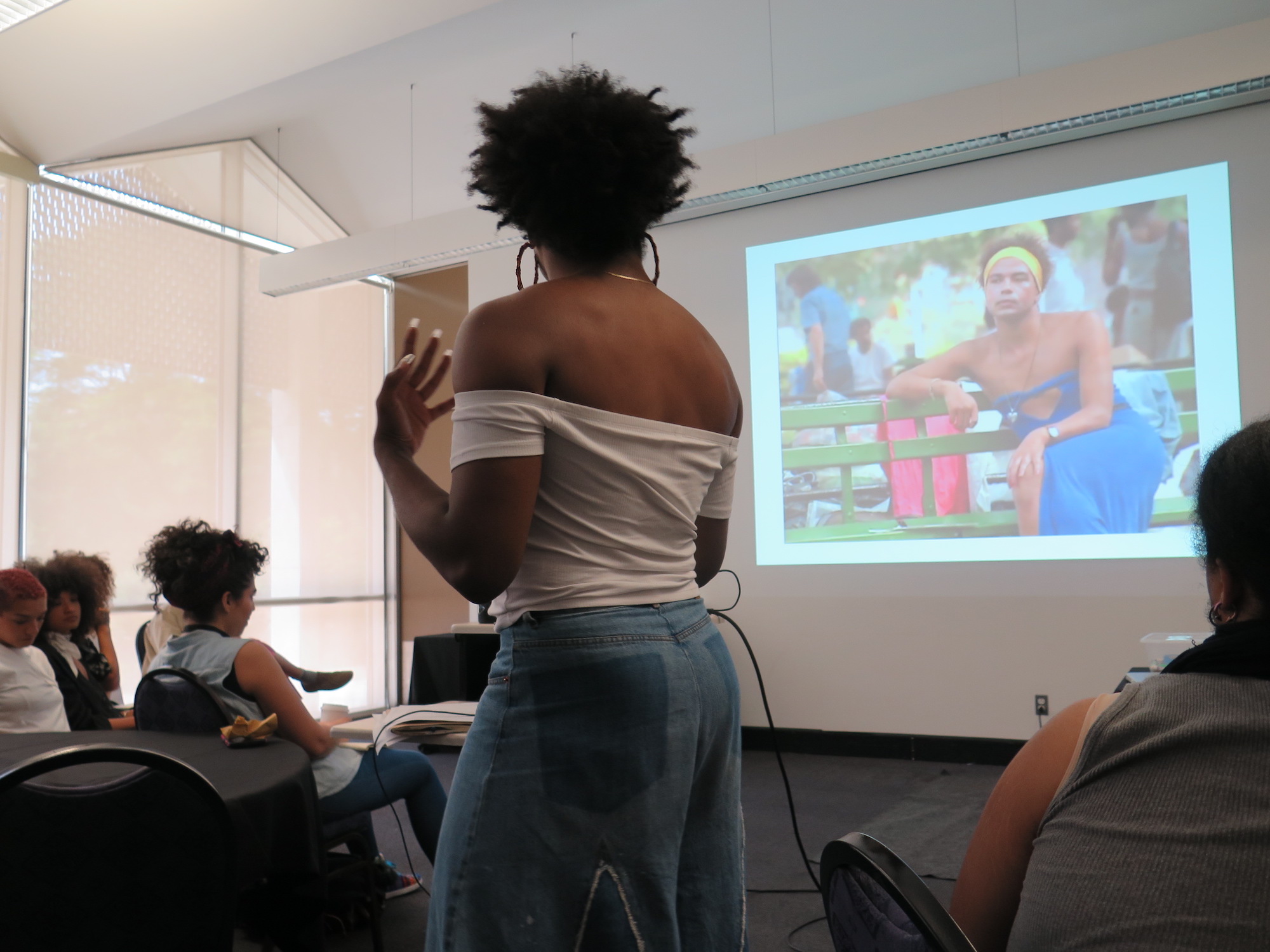
Kiyan Williams leading their session, “Reflections in BlaQ”, at AMC2018
At the conference, I was struck by what a difference a year makes. With the explosive rise of #MeToo, we have seen an impressive convergence of movement organizing and new technologies towards the aim of justice and empowerment for survivors of sexual abuse. This change was highlighted at the conference as #MeToo movement founder and social activist Tarana Burke spoke powerfully in conversation with Mariame Kaba, founder and director of Project NIA, at the opening ceremony.
An upcoming generation of artists and activists gave powerful presentations of their work, such as gender non-conforming artist and writer Kiyan Williams’ multimedia performance Reflections in BlaQ, inspired by Marlon Riggs’ archives, and BUFU’s interactive exhibit of their multimedia documentary investigating Pan-African and Pan-Asian cultural and political relationships.
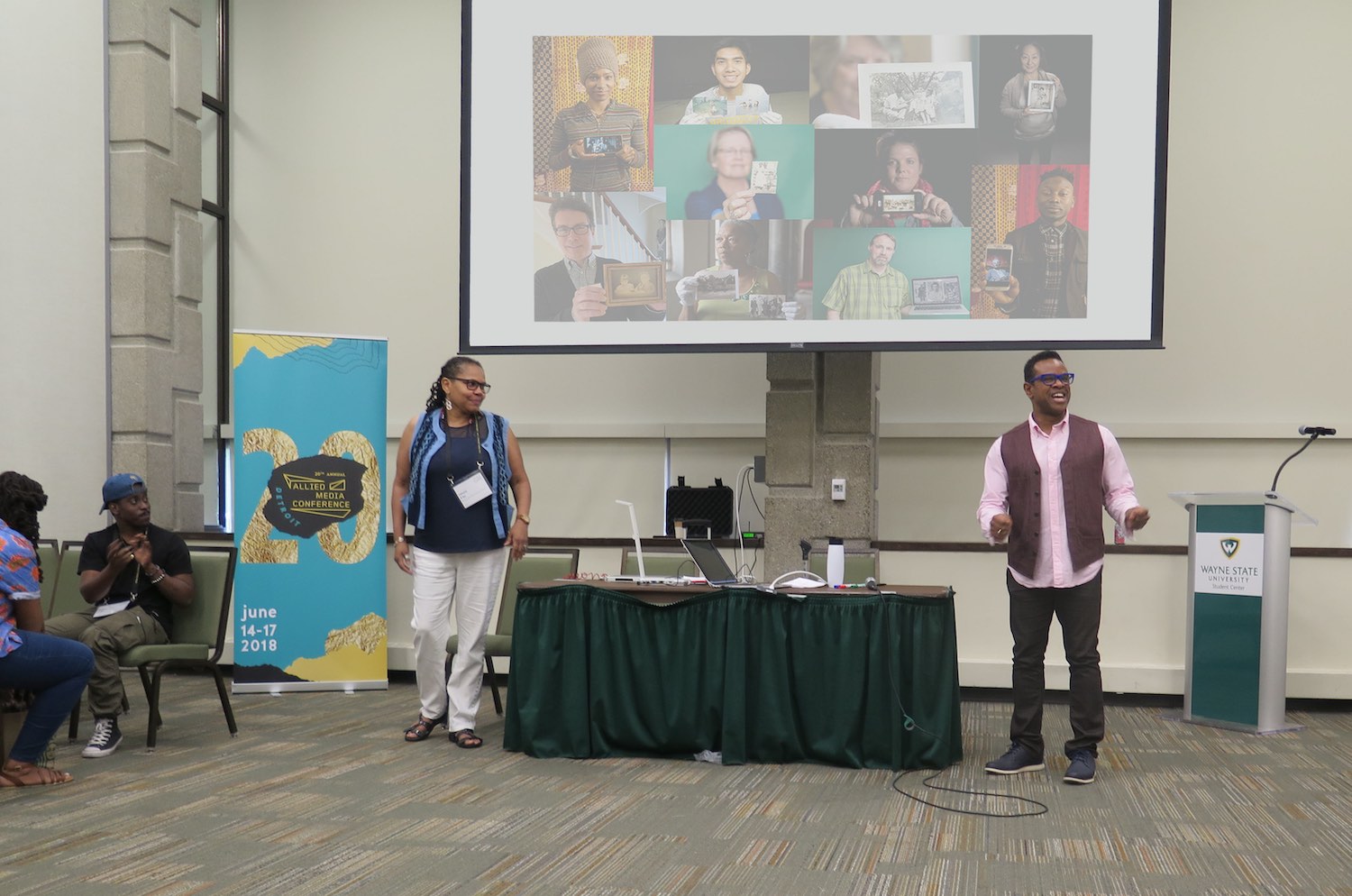
HOW CAN WE BUILD A RADICAL COLLECTIVE ARCHIVE FROM EVERYDAY FAMILY ALBUMS?
AMC coordinator of the Radical Libraries, Archives and Museums track Celeste Â-Re, who was first introduced to our work after hearing my interview on The Pulse radio show, advocated for our inclusion in the 2017 and 2018 conferences. She attended our session because she felt our “work is essential to the documentation of historically marginalized and racialized communities”.
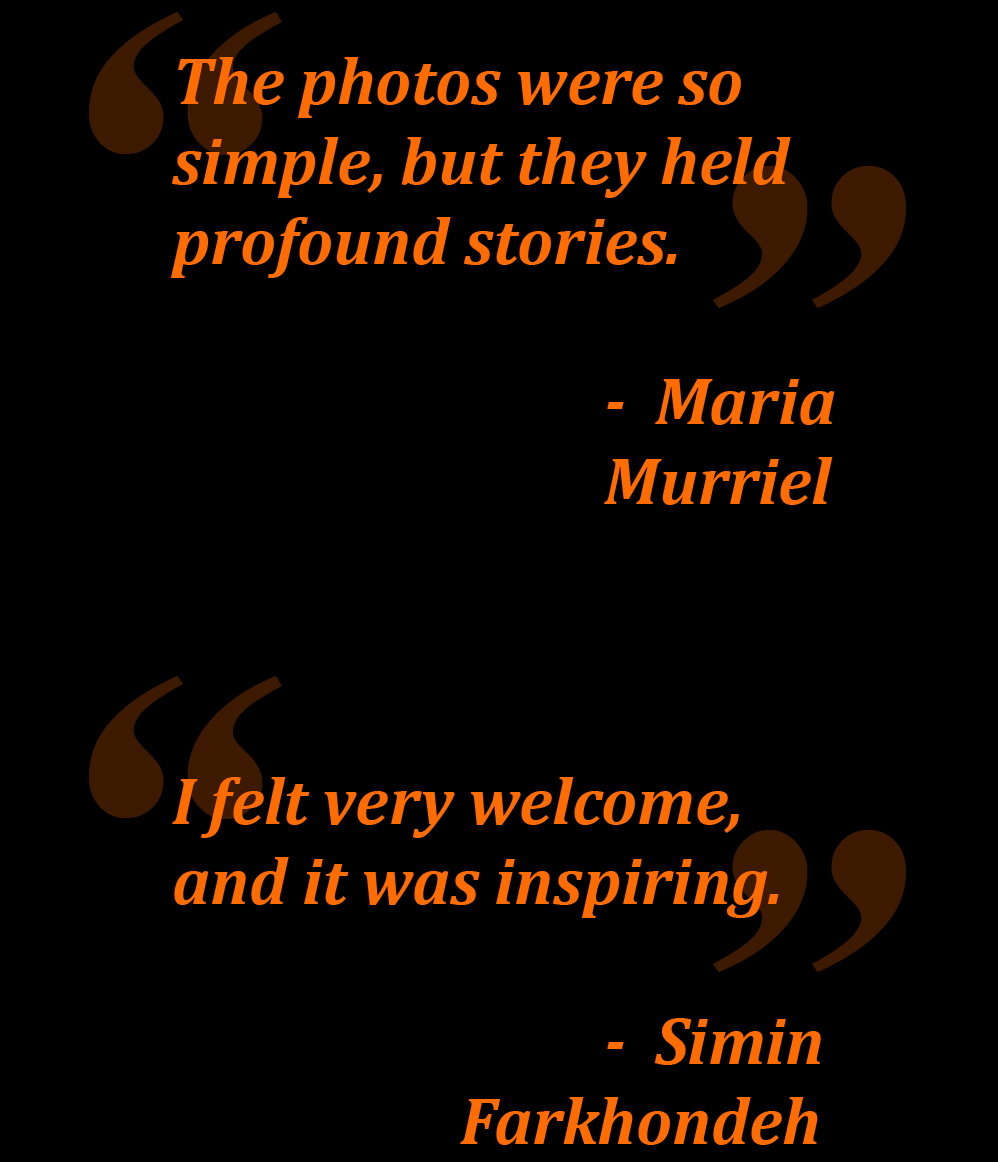
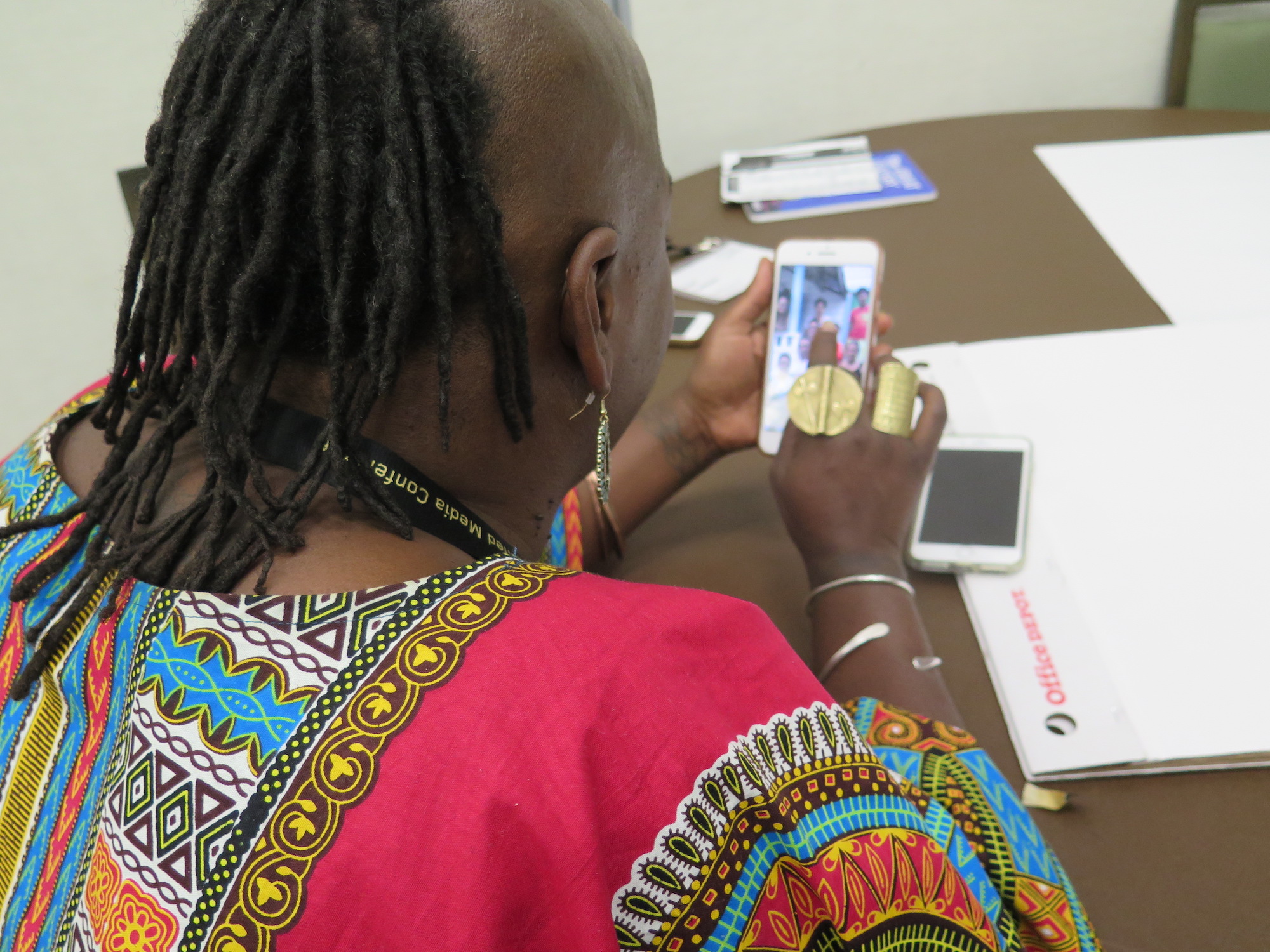
For our session, we wanted to tap into the core of our Family Pictures USA project, which is the socially transformative power of everyday family albums. We broke into small groups and encouraged participants to share family photos using their phones and tablets. Participant Kari Carlson said of the experience: “I loved observing connectivity grow when we showed family photos to one another in small groups”.
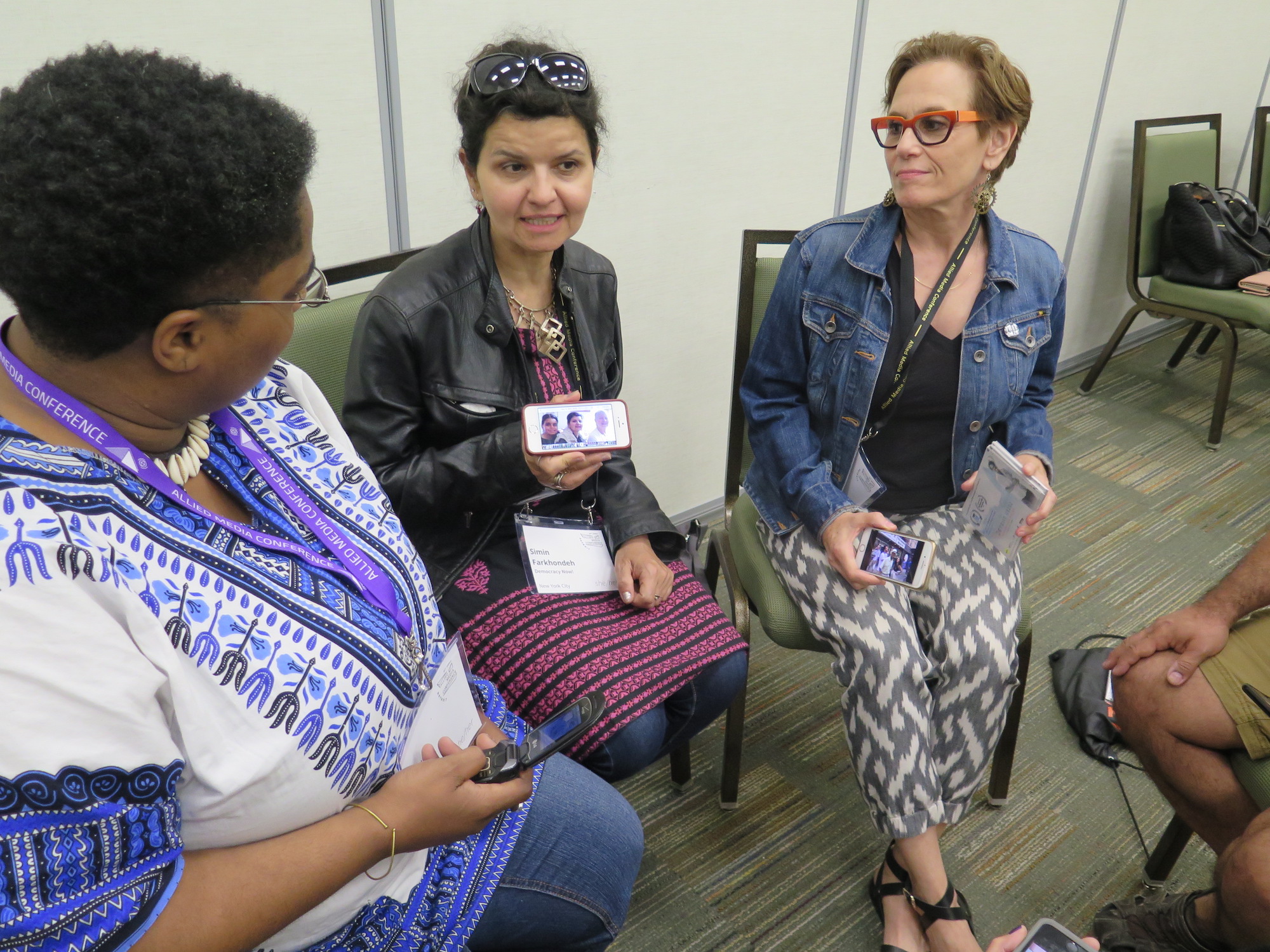
During the workshop, we discovered almost everyone was on a quest to tell stories often forgotten or neglected, whether in their own families or communities. There were artists and aspiring activists who shared similar interests in expanding the notion of “Family” through the use of various mediums and archiving practices.
Together, we workshopped the use of family archives as a means to develop our own narratives and to reveal connections. As a collective, we discussed collaborative strategies and techniques for collecting oral and photographic histories, tailored to our personal projects and community organizations.
THE BIRTH OF NEW CREATIVE IDEAS
It was moving to see people across different ages and backgrounds exchange stories and generate new project ideas.
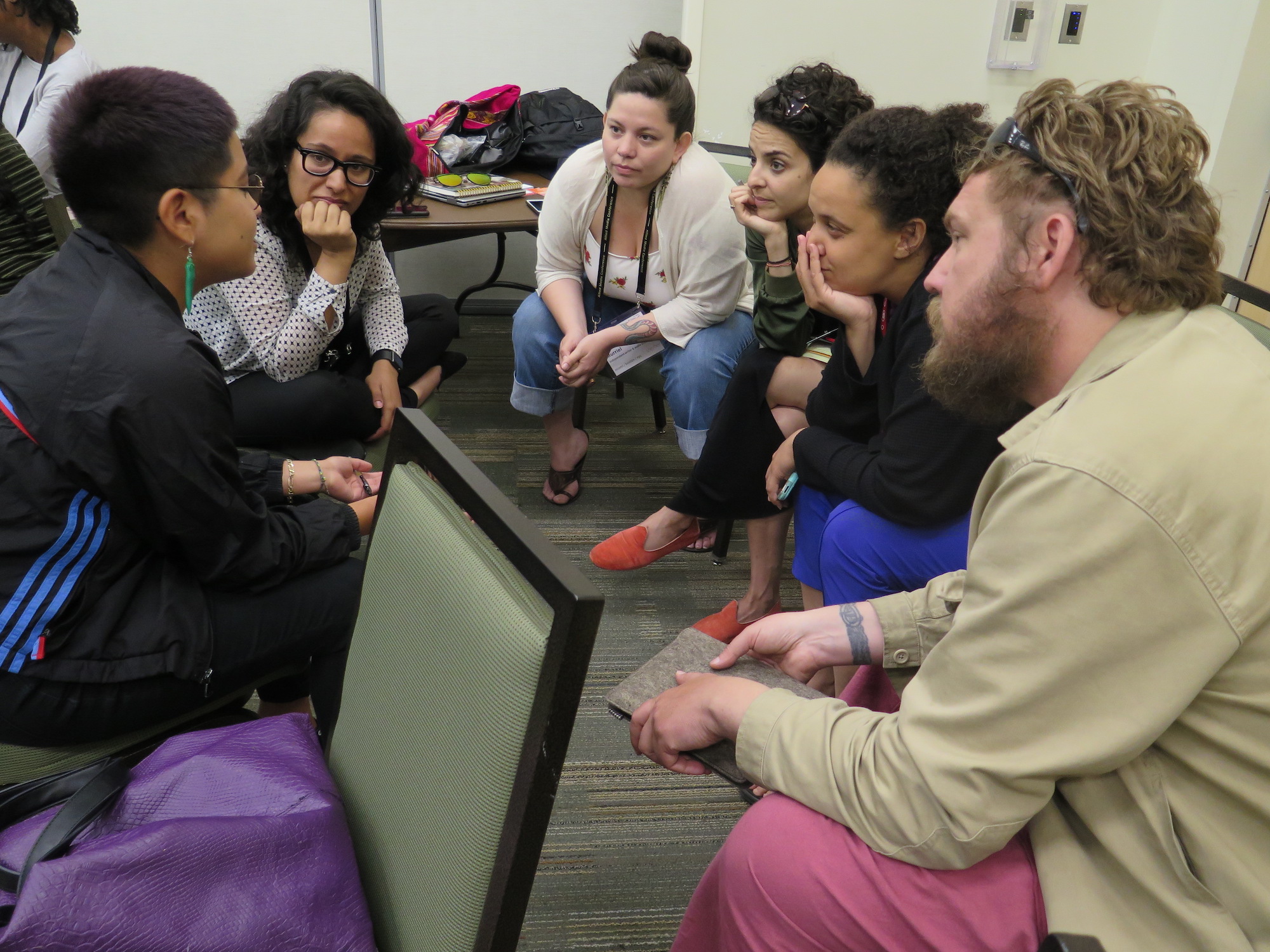
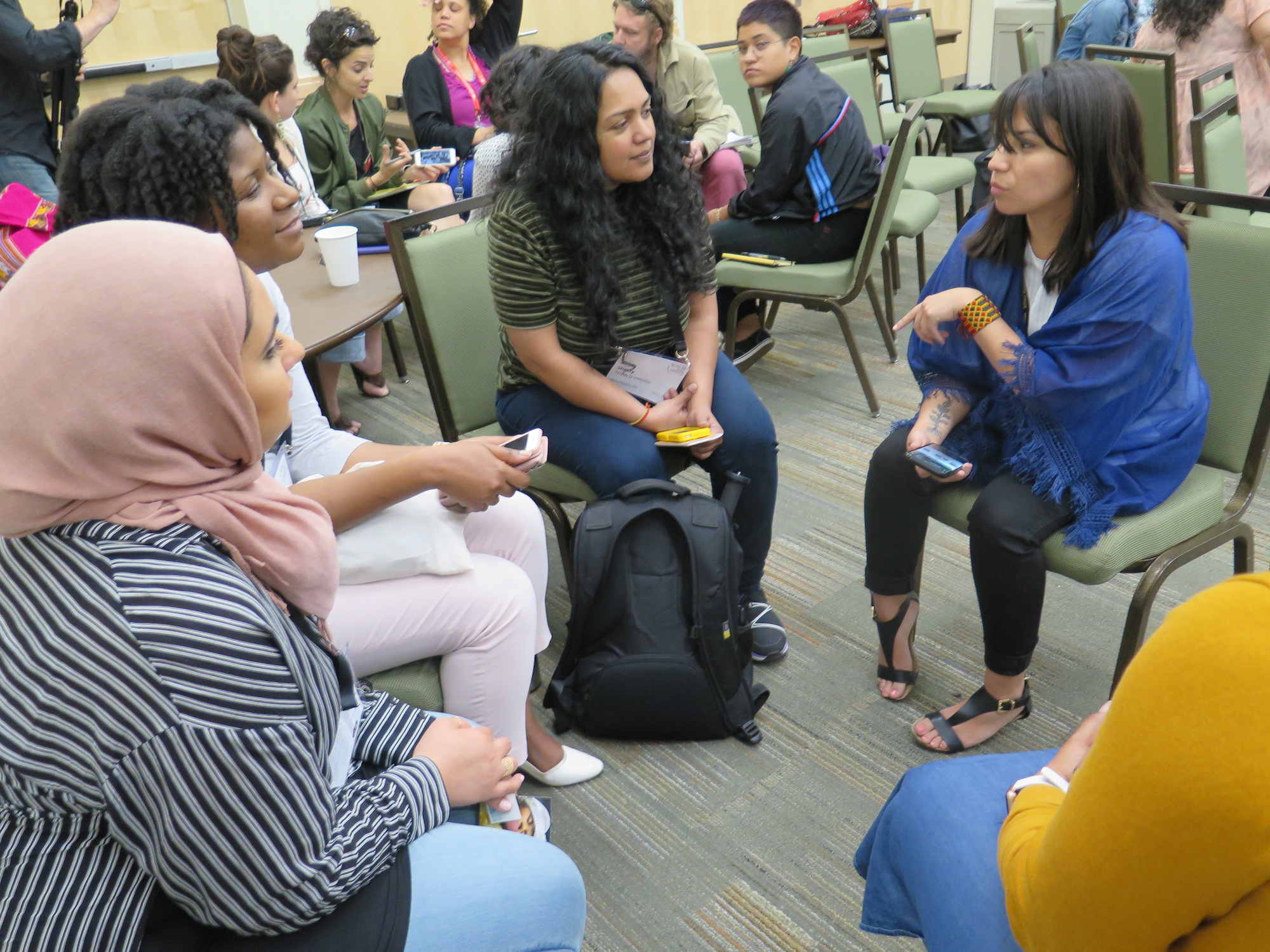
Participant Maria Murriel, a journalist who plans to produce an audio documentary about Peru’s 1990s guerrilla drug conflict, shared with the room the experiences of her family during that period. She walked away from the session with a new strategy to interview her reticent grandmother about her family photographs.
Simin Farkhondeh, Education Director of Democracy Now!, noted her surprise that the workshop was able to activate tools participants had on them, including “cellphones, in a very creative and accessible way”. During the session, she was inspired to think of “ways to use photos from [her] Iranian father’s family to break the myths that exist about Southwest Asian people and especially Muslim people”.
POWERFUL AFFIRMATIONS
The feeling we held in the room together at the end of the session was powerful. Laila Oweda, host and producer of Builders podcast, left us with an affirmation: “I am completing an important task by cataloging my family’s videos and photos”. The excitement we felt activating our family archives through group discussion and brainstorming new creative projects was palpable.
Within the enormity and brilliance of the Allied Media Conference, we created meaningful connections by sharing our family albums. Often these albums hold stories unknown to us, stories that can activate entire communities once uncovered. In the words of participant Roberto Martinez, professor at Brooklyn College: “Uncovering our secret pasts can be radical”.
Check out our Flickr Album to see more from this interactive workshop!
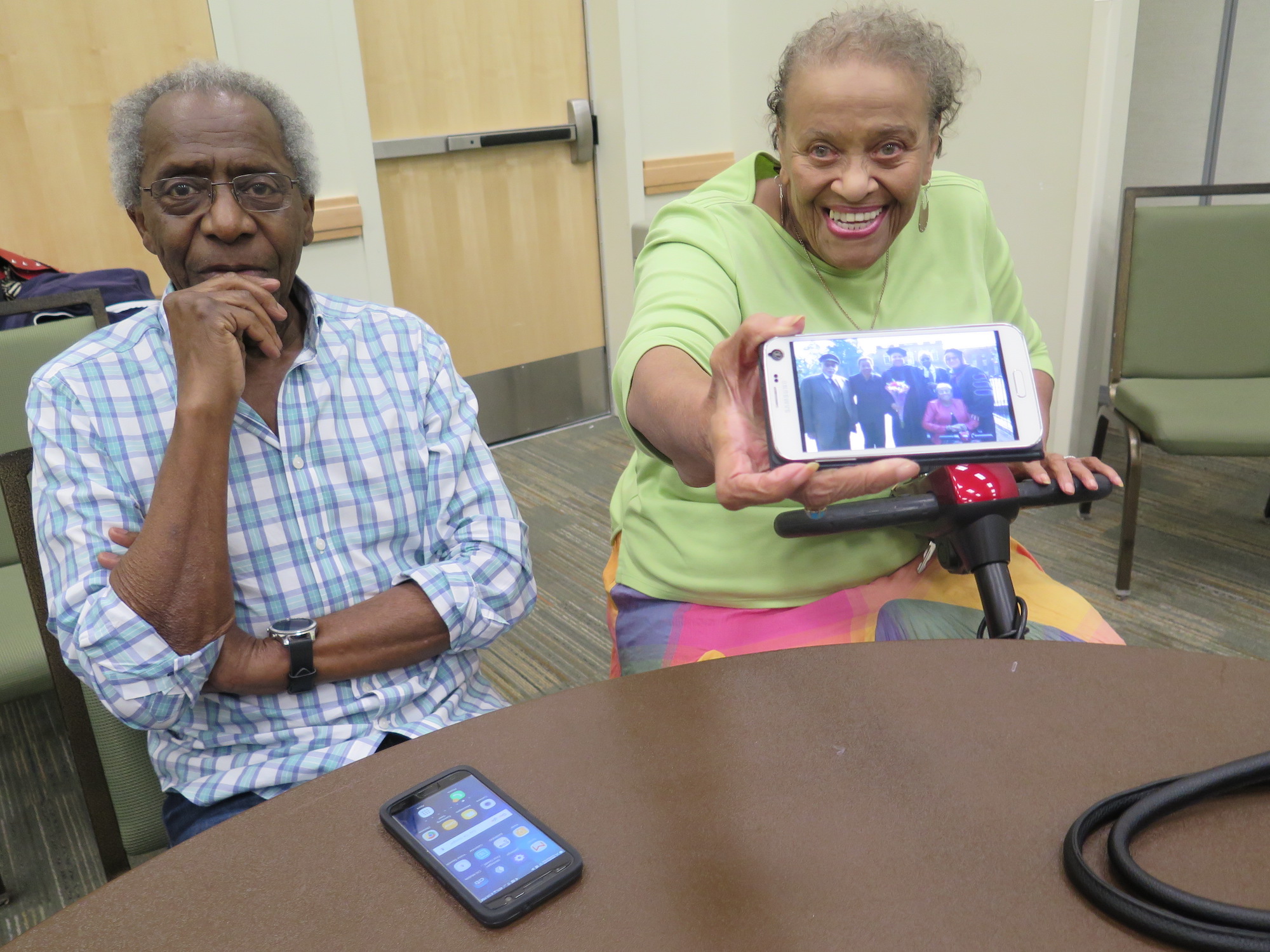
Family Pictures USA will be coming to Southwest Florida to hear your stories and see your old family photographs! Click here for the submission link for residents in Southwest Florida for a chance to be in the Family Pictures USA television series and be a part of our new national family photo album.
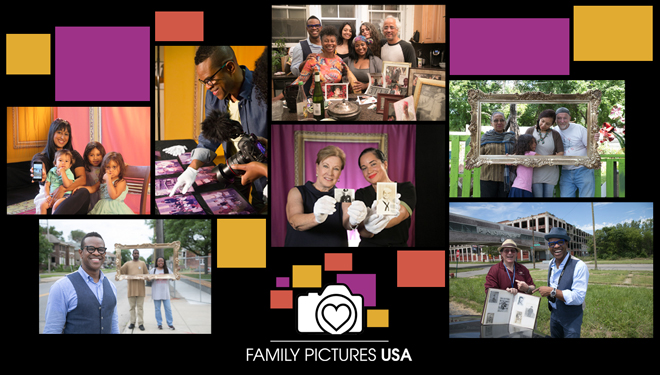
No comments yet.